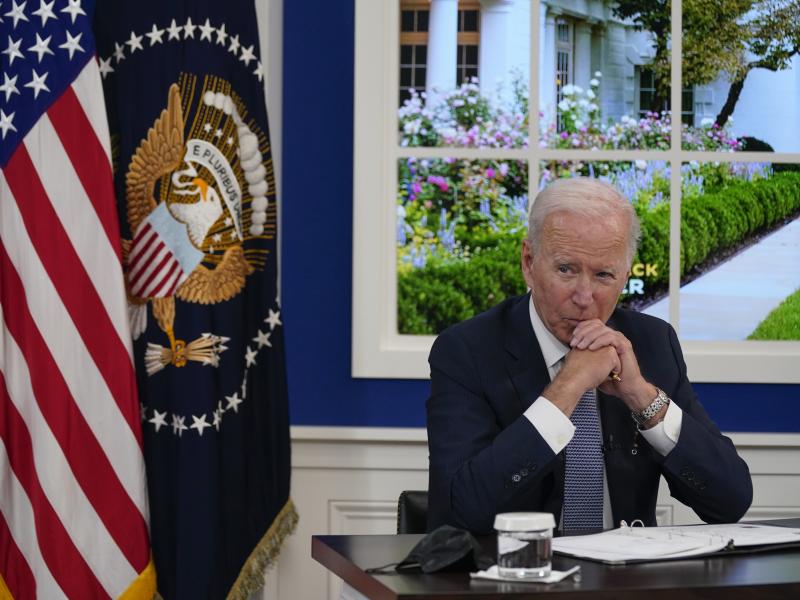
It's hard not to be depressed watching our political system at work. Red and Blue Americans are not only moving farther apart on social, cultural and economic priorities, but have convinced themselves that the other side is dangerous. Rules that are supposed to apply to all are now selectively curated. In states like Texas and Arizona, red-state legislators are selectively auditing the 2020 election results of the blue-leaning counties in their states. In blue parts of the country, "progressive prosecutors around the country are increasingly declaring they just won't enforce some GOP-backed state laws" on controversial issues like abortion, voting restrictions and mask requirements.
Many argue that the only solution for saving our democracy and government system is to reform it. It's time, they say, to get rid of the Electoral College, expand the House's size, or implement national ranked-choice-voting. Others suggest that we look to things to strengthen our civic infrastructure, like a national service requirement for high school-age Americans and/or a greater emphasis on teaching civics education in secondary schools.
There's precedent for this kind of structural shake-up. At the turn of the 20th Century, activists frustrated by the strangle-hold party bosses and state legislatures had on our system of government pushed for — and succeeded — in making substantive changes to the political system, such as the direct election of Senators (17th Amendment), and the introduction of primaries.
But, our lack of faith in each other makes it difficult to imagine that we'd be able to unite around any significant change to our current political rules; what one side sees as reform the other side views as a brazen power grab. Moreover, some of the reforms designed to root out one problem have spawned new and unexpected ones. Take the primary system. The ability for 'regular' voters to participate helped to loosen the grip of party bosses. But, today, very few of us vote in down-ballot primaries, which has empowered a smaller group of more radical voters to become the new gatekeepers of the two parties. Instead of patronage, these people are interested in the pursuit of ideological purity.
It's also hard to disentangle our political divides from our broader societal divides. "Not only do the two parties adhere to very different views," wrote Mark Muro and Jacob Whiton of the Brookings Institution, "but they inhabit increasingly different economies and environments." Blue America, centered in fast-growing urban and suburban America, is filled with workers who represent the professional and 'knowledge' economy, while Red America, based in rural and small-town America, depends on industries like manufacturing, resource extraction and agriculture for its economic well-being. As such, write Muro and Whiton, "the two parties talk almost entirely past each other on the most important economic and social issues, like innovation, immigration, and education because they represent starkly separate and diverging worlds."
On top of this, we have a media and information eco-system designed to exacerbate these tensions as well as unscrupulous political figures who stoke and fan these flames. That has given rise to a toxic level of mistrust between the two sides, with majorities saying they see the other side as dangerous to the country's well-being.
We haven't just lost faith in one another; we've also been losing faith in most institutions that have served as the foundation of our society, like organized religion, public schools, and government.
But, instead of thinking of this crumbling of traditional institutions as proof of a coming apocalypse, it may also be the tipping point in the creation of a new, 21st Century institutional model; in other words, not just the end of an era but the beginning of another.
"When institutions fail, alternatives will always rise to take their place," writes Rachel Botsman, a lecturer at Oxford University's Saïd School of Business in her book "Who Can You Trust: How Technology Brought Us Together and Why It Might Drive Us Apart." Botsman argues that "we are at the start of the third biggest trust revolution in the history of humankind," one that moves from institutional trust to what she calls 'distributed' trust. "Trust that used to flow upwards," writes Botsman, "to referees and regulators, to authorities and experts, to watchdogs and gatekeepers is now flowing horizontally, in some instances to our fellow human beings and in other cases to programs and bots." As we've lost faith in institutions like banks, big business and the media, we've placed trust in things that at one point would have seemed outrageously dangerous. We are willing to get into a stranger's car (Uber), stay in a stranger's home (Airbnb), and purchase 'currency' that exists only in the theoretical (bitcoin). We share our opinions, bank accounts and health records with one another via the internet, often without thinking twice about how remarkable (and remarkably dangerous), this would have felt just a couple of decades prior.
It's easy to look at our ongoing political polarization and divides and conclude that things will end only in violence or societal collapse. At the same time, we live in one of the most dynamic and adaptable societies in human history. Moreover, we are terrible at predicting the future, especially as technological developments outpace our imagination. This isn't whistling past the graveyard. I get that we have real and serious challenges ahead of us. But, I also know that there are unseen currents all around us that are already making many of our assumptions moot. That's not to say we don't try to fix what's broken. Or that we assume this new era of trust won’t have its own dark side. But, we also need to have the humility to appreciate that there's no simple or obvious solutions.

Subscribe Today
Our subscribers have first access to individual race pages for each House, Senate and Governors race, which will include race ratings (each race is rated on a seven-point scale) and a narrative analysis pertaining to that race.